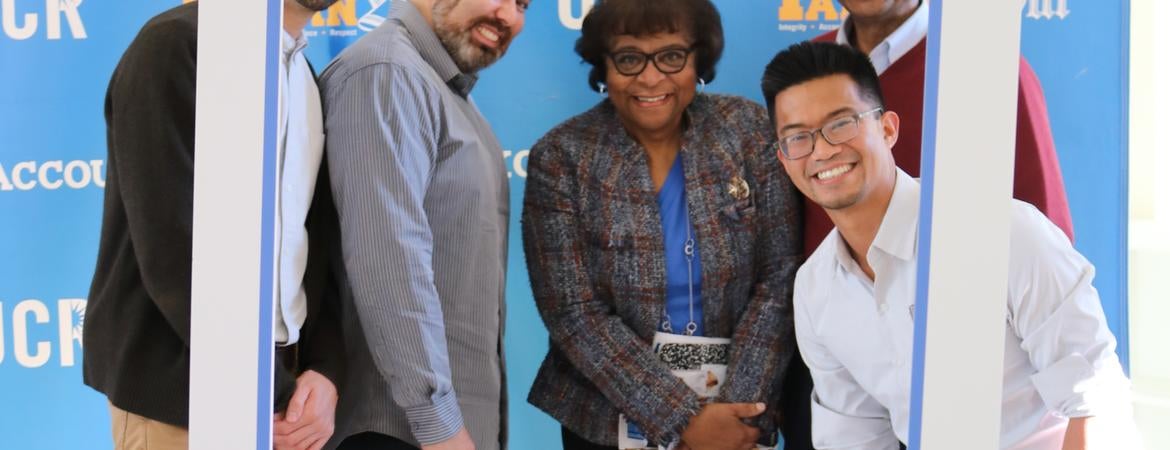
Jan. 11 marked many firsts for the H1GLANDER First-Generation Project, a UCR initiative to increase awareness of first-generation issues and experiences.
The inaugural “1/11 First-Gen Talks,” which took place in the new Rivera Library teaching and learning center, introduced a series of panels and community discussions around first-generation issues that included students, faculty, and staff.
The half-day event, which also featured a photo booth and prizes, sparked conversations about resources available to first-generation students, and the importance of mentorship.
Thomas Dickson, assistant vice provost of Undergraduate Education and host of the event, outlined the program’s goal of increasing awareness of first-generation at UCR, inviting panelists to share their personal stories.
Panelists talked about the mentorships that inspired success.
“[I had] teachers who saw something in me I hadn’t seen in myself,” said faculty panelist Yolanda T. Moses, professor of anthropology, whose father moved her and her three sisters “straight out of Compton” as Moses said, for a better life in Perris when they were small children.
Moses pursued a rich education coupled with social and field work, experiences that she said provided an advantage applying to grad school. “You have to do things along the way…things that make you whole.”
Elena M. Perez, coordinator for academic intervention and tutorial assistance programs, said she tells students: “Life doesn’t stop because you are a student and school doesn’t stop because life happens. You have to find a balance [by using resources] to ensure you can get to your end goal and be your happiest self.”
For panelist Worku Nida, assistant professor of anthropology, school was always his end goal, despite the odds of growing up in a village in Ethiopia where he had to walk an hour and a half to class. Nida’s parents, farmers who couldn’t read or write, were so proud when he learned to read that his father gave him a family horse to get back and forth from school. Nida completed his Ph.D. at UCLA before coming to UCR as faculty.

First-generation student panelists pose for some #FirstGenUCR pride
Themes of sacrifice echoed in student and faculty stories, leading some student panelists to conclude that sacrifice has played a role in their success.
“We’re creative and can push boundaries,” says Tammy Nguyen, a senior who agreed with her fellow panelists that first-generation students are more willing to make sacrifices, fight harder, and not let themselves get comfortable.
At UCR, 58 percent of new and continuing students are first-generation, compared to 42 percent throughout the University of California system, and 34 percent nationally.
“I never thought I’d be here,” says Daniel Murphy-Gonzalez, an engineering major and first-generation student panelist who balances his time between tutoring, on-campus clubs, academics, and working in a research lab.
“How do you get through a system that wasn’t designed for you to be there?” Moses asked the room. Being a first-generation student “gave me the tools to make a place for myself.”
The H1GLANDER First-Generation Project is UCR’s response to the UC Office of the President’s call for first-generation faculty support. UCR’s unique program extends the initiative to include first-generation students, faculty, staff, and alumni. Among its initiatives has been a first-generation website to serve as a clearinghouse of resources and programs, create a sense of community for first-generation, increase collaboration among campus support programs, seek additional grants and funding, and develop additional resources and programs.